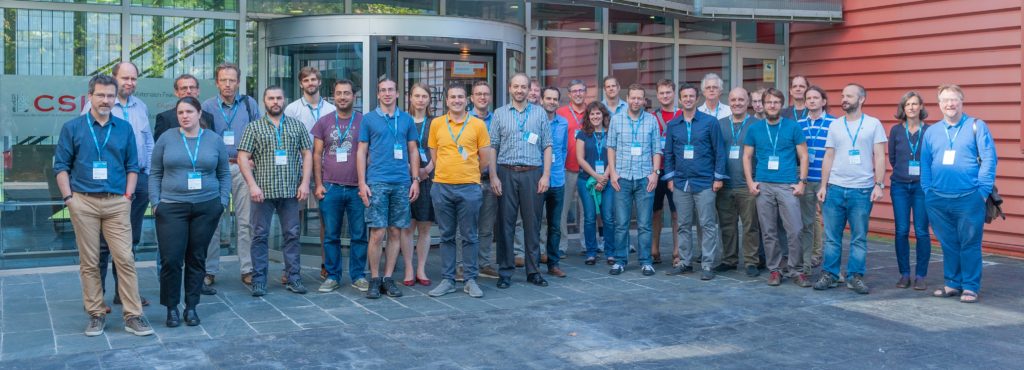The Workshop “Theoretical methods in molecular spintronics (TMSpin) was held at the Materials Physics Center of the University of the Basque Country in Donostia-San Sebastian from the 17th to the 20th of September 2018. This workshop welcomed 31 invited speakers and several postgraduate students presenting posters. The event was co-sponsored by Psi-k and the Donostia International Physics Centre (DIPC- http://dipc.ehu.es/).
Molecular spintronics is the study of spin-related phenomena in molecules and atoms and their possible applications for the next generation of data storage and processing devices as well as for the implementation of quantum computers. Electronic structure theory has played a prominent role in molecular spintronics. The comparison of theory and experiments has demonstrated the importance of first-principles calculations, which go beyond model representations of molecular devices as simple “quantum dots” or effective spin Hamiltonians. Nonetheless, standard electronic structure methods based on Density Functional Theory often fail in describing molecular spintronic systems even at a qualitative level. This is because most magnetic phenomena are manifestations of correlation effects, which become extreme at the single molecule scale and which are not captured by standard implementations and approximations of DFT. The goal of TMSpin was to address the question:
“What electronic structure theory to use for molecular spintronics?”
The workshops gathered theoretical physicists and quantum chemists with different areas of expertise. On the one hand there were those researchers that have provided important contributions to the advancement of molecular spintronics since its inception. They were asked to give an overview about the field and moreover to highlight the open questions that to date cannot yet be addressed by theory. On the other hand, the workshop gathered some of the leading researchers in theory and code development, who presented the most recent fundamental and numerical advancements for a number of methods. The organizers promoted an intense discussion to understand whether such methods can be already employed in molecular spintronics. Continue reading Workshop Report: “Theoretical methods in molecular spintronics” (TMSpin)

